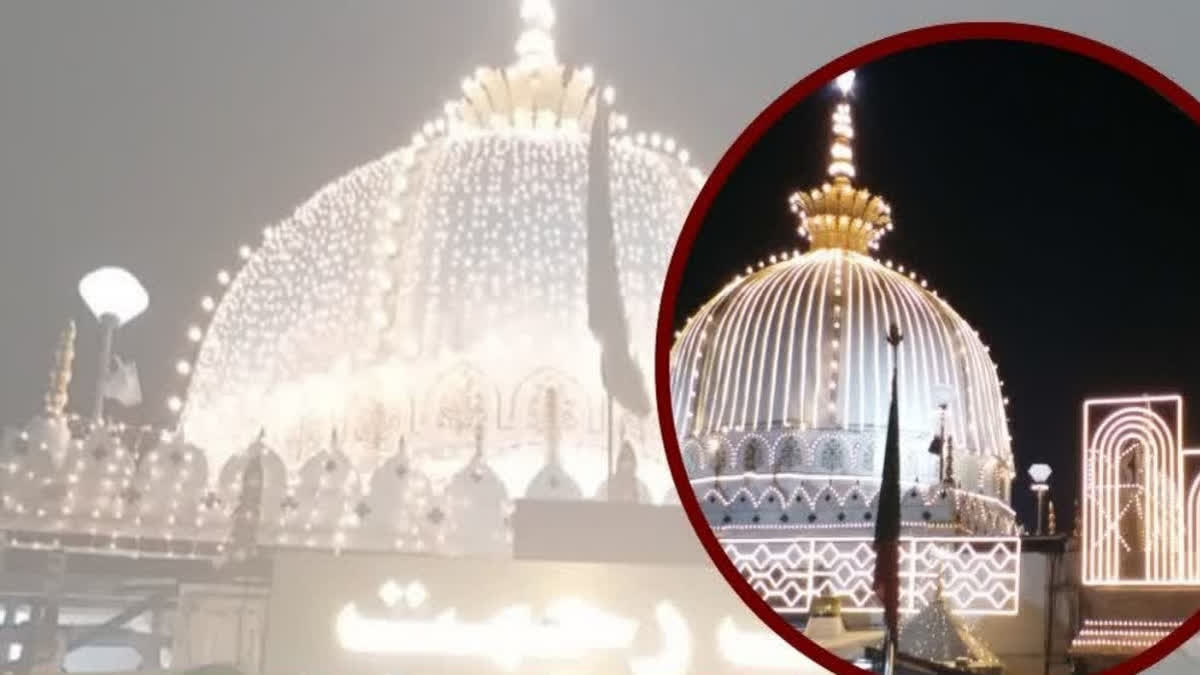Jaipur: Six more applications were moved in a court in Ajmer on Friday for becoming a party in a petition that claims the famed dargah of 13th-century Sufi saint Khawaja Moinuddin Chishti was built over a Hindu temple. The court will hear the matter on March 1.
Earlier, five applications were moved, which makes a total of 11 applications to be heard in the matter. The petition filed by Hindu Sena president Vishnu Gupta claims the dargah was built over a Shiva temple and a survey should be conducted to find out the temple.
The dargah, built by Mughal king Humayun in honour of the Sufi saint, is considered to be among the holiest Muslim shrines in India and is also a famous landmark in Ajmer, drawing reverence from people across religions.
"We have presented our reply before the court on the previous applications. The applications were moved to dismiss the petition. We have asked time to reply to the new applications. Now, the court will hear the matter on March 1," Gupta told reporters.
The court on November 27 admitted the petition and issued notices to Ajmer Dargah Committee, Ministry of Minority Affairs and Archaeological Survey of India (ASI) office New Delhi, seeking their response. The petition had sparked a controversy with Muslim leaders expressing concern over it.
A group of former bureaucrats and diplomats including former Delhi LG Najeeb Jung, former high commissioner to the UK Shiv Mukherjee, former CEC S Y Quraishi and former RBI deputy governor Ravi Vira Gupta had written to Prime Minister Narendra Modi, seeking his intervention to halt all "illegal and pernicious" activities that are an "ideological assault" on India's civilisational heritage and pervert the idea of an inclusive country.
The group reminded Modi that he himself had sent "chadars" on the occasion of the annual Urs of the 12th-century saint as a homage to his message of peace and harmony.
On January 4, Union Minority Affairs Minister Kiren Rijiju offered a ceremonial 'chadar' sent by Modi at the dargah and read out the prime minister's message which called on people from across religions to work together in harmony.
The next day, a chadar was also offered on behalf of Defence Minister Rajnath Singh. The prime minister has been annually sending a 'chadar' to the dargah.
Khwaja Moinuddin Chishti was a Sufi saint from Persia. He reached Ajmer and made it his home from 1192 till his death in 1236 AD. In the shrine, there are doors that lead into a courtyard where the saint's tomb is centred.
During his reign, Mughal ruler Akbar made a pilgrimage to Ajmer every year. He, as well as Shah Jahan, built mosques inside the shrine complex.



